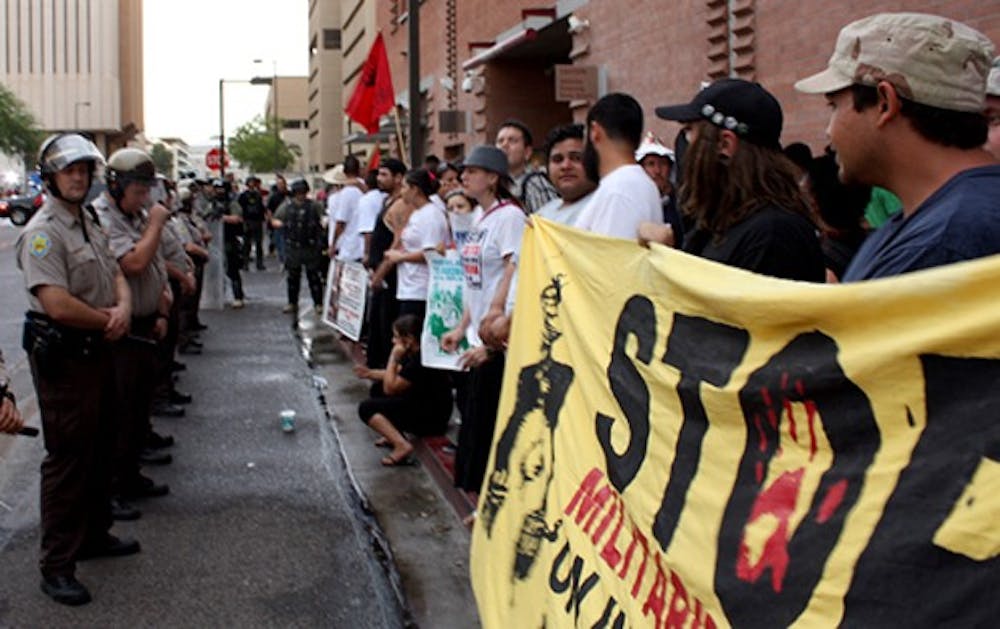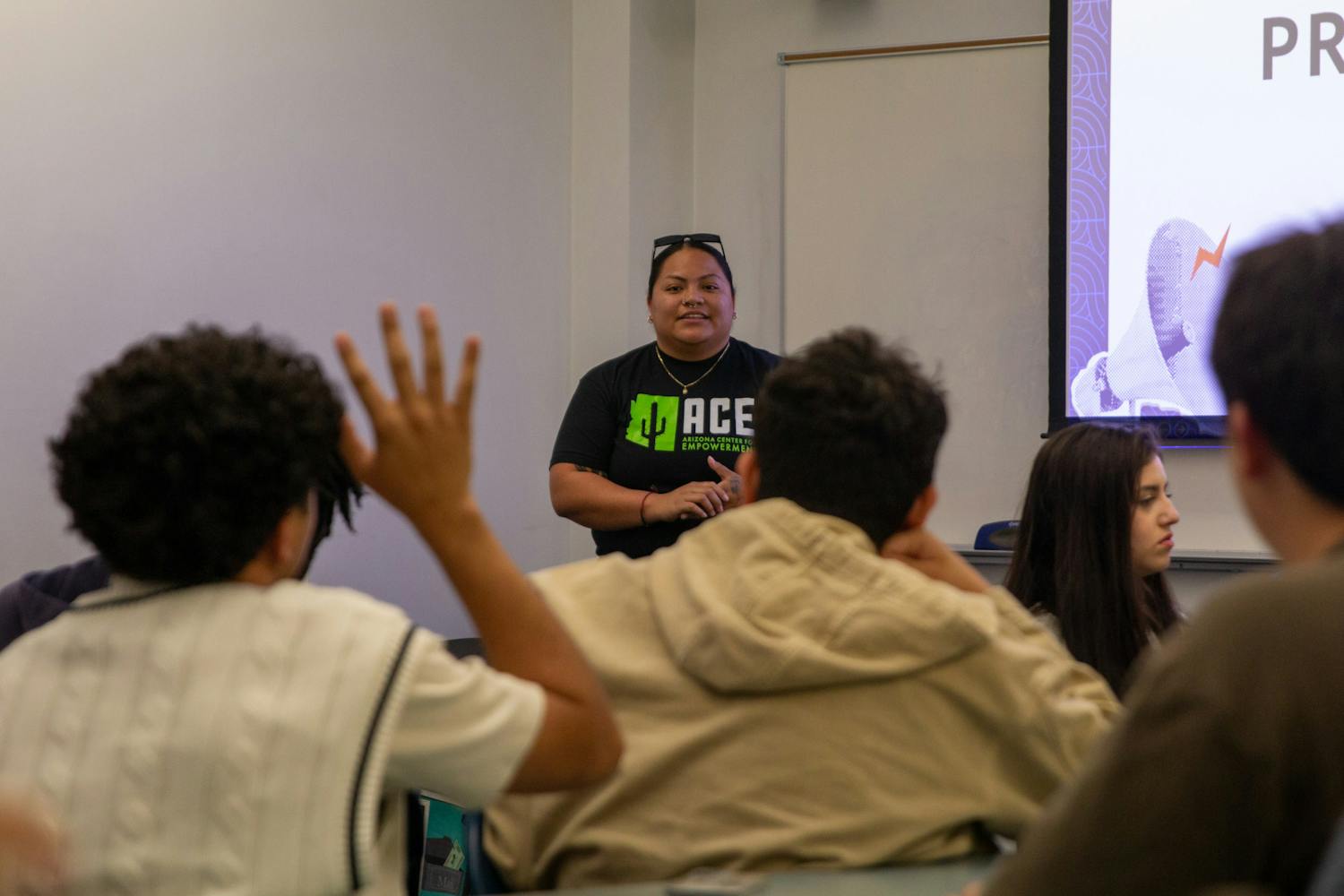Some things you have to see for yourself. Such was the case for three students from Leiden University in Holland, who came to Arizona over spring break to do research on the ramifications of the notorious anti-immigration bill Senate Bill 1070, signed into law two years ago and soon to be up for review by the United States Supreme Court.
SB 1070 quickly caused a domino effect: several copy-cat laws were passed by other states in its wake. And even after having the most significant portions of it struck down, it has awakened serious public debate about immigration, causing ripples not only nationally, but across the ocean.
Michiel Glas, Marten Zoetbrood and Rolf van Wegberg were all in a graduate “crimigration” class (a class that focuses on the convergence of immigration and criminal law) together and formed a group on the first day to chair a presentation later in the semester.
They ended up receiving Arizona’s immigration law as a topic, and over a cup of coffee thought it would be interesting to report on the law from on the ground. Coincidentally, Arizona State University Professor Doris Provine happened to visit Holland for a lecture around the same time.
“She flew into Holland to have a lecture at the honors class, then we discussed it afterwards and then [she] wrote a letter saying that we were welcome here and with that letter we applied for a grant, and now we’re here,” van Wegberg says.
Coming to Arizona from Holland, the research group had the ability to see the bill with a fresh perspective, apart from those mired in the muck of political rhetoric.
Before coming to Arizona, the trio did some research on the immigration law and were expecting an environment that was especially hostile to immigrants.
“When we first did our preliminary research, looking at the famous SB 1070 we were expecting it to be very harsh. If you look at the law and you look at the way Jan Brewer has been behaving as the governor of Arizona, you would expect a very harsh environment for these people,” Glas says.
According to their research plan, they planned to conduct interviews with ICE and Homeland Security at Phoenix Sky Harbor International Airport, but those plans back fired. By a stroke of luck, on their way to the federal courthouse they spotted an attorney who just happened to do immigration and law; she led them into a courthouse and let them watch a case.
After the case, they were allowed to speak to the judge, who phoned Judge Steven Logan at the Phoenix Federal Court. Logan had worked at the Eloy Detention Center two years before, a facility that deals with immigration affairs. They also had the opportunity to speak with a current judge at Eloy Detention Center, Irene Feldman, who permitted a visit.
One specific instance at Eloy Detention Center made an impression on their research.
“There was a woman when we were in court at the Eloy detention center. And she said, ‘Just let me go home,’ she had been here for 14 years had a family here. But the judge said, ‘Let’s first check if there is anything that you’re eligible to let you stay here legally.’ If it was the case that the law was being applied stringently that wouldn’t be the case,” van Wegberg says.
Overall, through their time at Eloy and talking with the judges, the research team came to the conclusion that the law was more symbolic in its potency than in actuality.
“After reading all the materials on the hardships on immigration in Arizona, there are a lot of words, but in practice it’s all basically the same [as] people were saying we cannot execute this law because it’s too rigid,” Zoetbrood says.
Another thing they did not expect was the lack of rhetoric about morality in the court opinions and discussions they engaged with while in Arizona.
“Most of the articles written on SB 1070 don’t speak about morality, [they] don’t speak about how it is maybe wrong to criminalize ‘being,’ because that’s what you’re doing by using criminal law instruments to enforce it,” Glas says. “The discussions are all about the very difficult federalism issue, there’s no focus on morality – no focus whatsoever,” Glas says.
This serves as a distinguishing point from Holland, where morality acts as an undercurrent of sorts, buttressing immigration issues.
“If you look at the debate in Holland, their debate in the professional community, there the humanity aspect is not aspect it’s just on the foreground,” van Wegberg says.
Despite the fact that much of the harsher dimensions of SB 1070 have been nullified, the research team still thought the remaining aspects of SB 1070 would have an impact within the community.
“We expected that when you create a law, it creates certain possibilities for law enforcement to arrest more illegal immigration, which we didn’t see happen. When you look at any news media, you think that everybody that gets arrested gets deported, but that wasn’t the case,” van Wegberg says.
Reach the reporter dgburns@asu.edu





